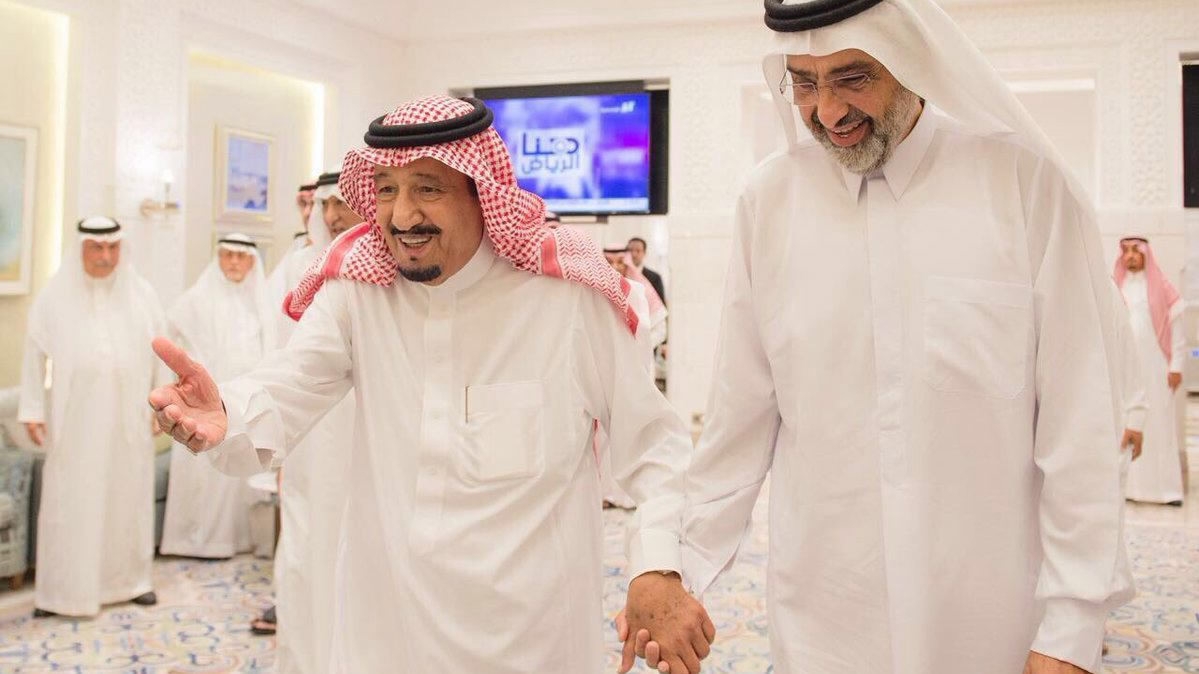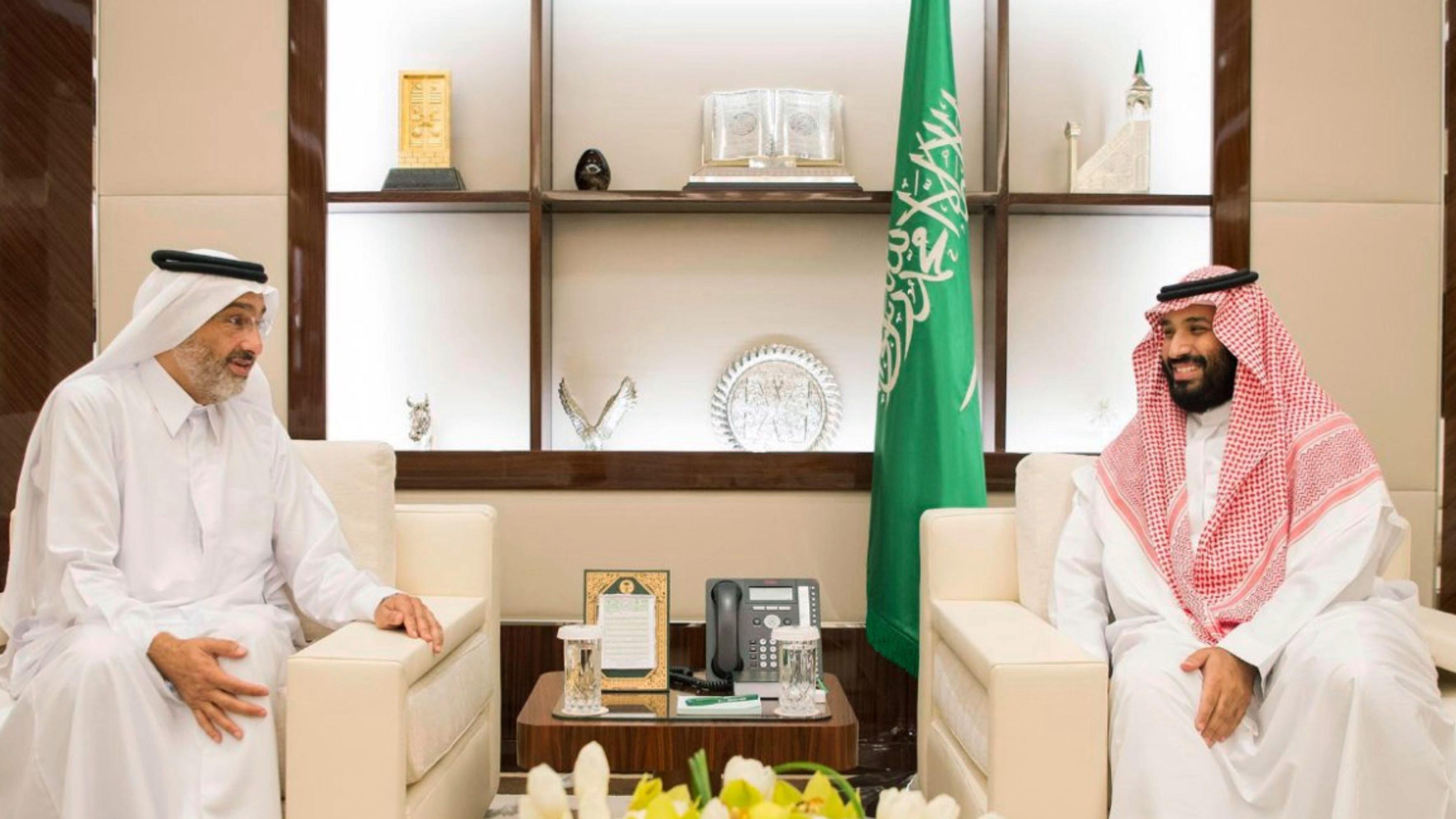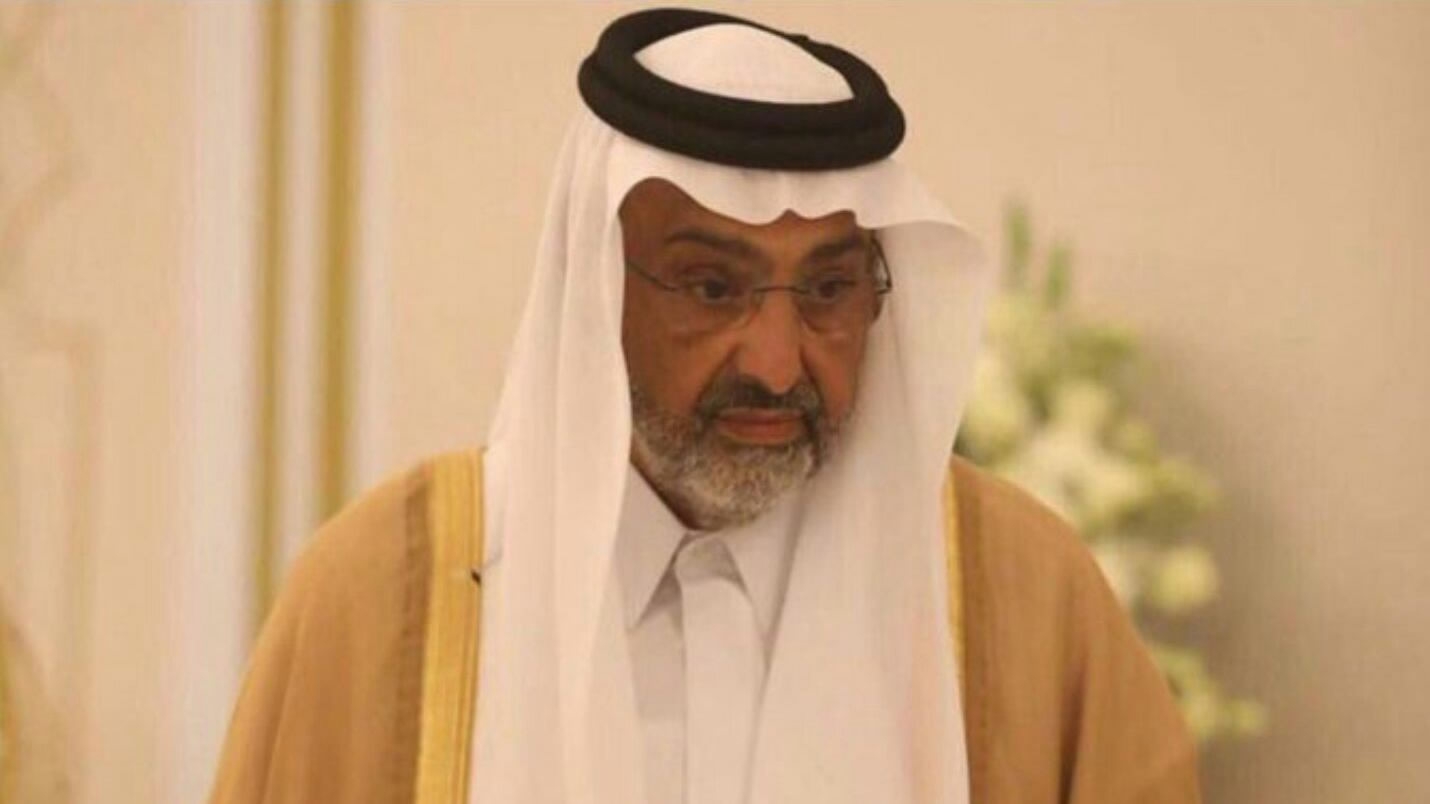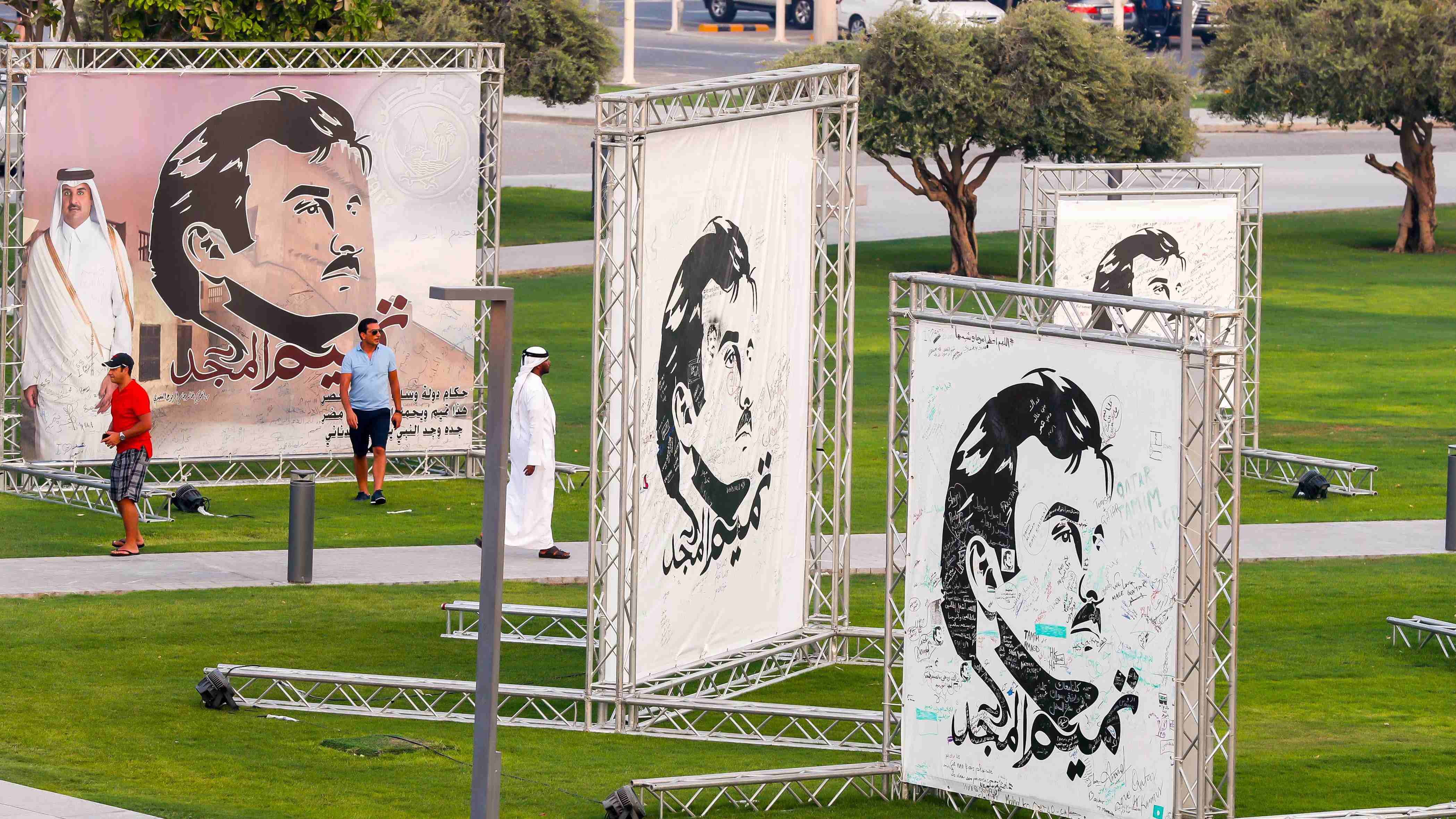
World
10:28, 23-Aug-2017
Spotlight on mysterious Qatari sheikh prompts regime change speculation
CGTN's Abhishek G Bhaya

A hitherto unknown Qatari sheikh is in news for his successful mediation efforts in the ongoing Gulf crisis. Sheikh Abdullah bin Ali bin Jassim Al Thani’s sudden fame has also prompted speculation whether he’s being pushed by Saudi Arabia as an alternative to Qatar’s current leadership.
It was Sheikh Abdullah's intervention apparently that led to Saudi Arabia’s temporary lifting of a weeks-long boycott of its Gulf neighbor, according to recent media reports.
Riyadh last Wednesday reopened its land border with Qatar to allow pilgrims from the Gulf emirate to attend the annual hajj pilgrimage in Mecca. The Saudi Press Agency (SPA) reported that King Salman bin Abdulaziz took the significant decision on a recommendation from the powerful Crown Prince Mohammed bin Salman following the latter’s meeting on the same day with Sheikh Abdullah, a little-known member of Qatar’s ruling dynasty.
Notably, it was the first public high-level encounter between the nations since the crisis erupted. Saudi Arabia and its allies cut diplomatic ties with Doha in June over accusations that the emirate supported Islamist extremists. Qatar has denied the allegation.
Saudi authorities highlighted the role of the mysterious Qatari sheikh in the temporary reopening of the border. On Thursday, it was reported that King Salman met Sheikh Abdullah at the Saudi royal residence in Moroccan coastal city of Tangier.
An unknown entity

A handout picture provided by the Saudi Press Agency (SPA) shows Saudi Crown Prince Mohammed bin Salman (R) meeting with Qatari Sheikh Abdullah in Jeddah on August 16, 2017. /AFP Photo
A handout picture provided by the Saudi Press Agency (SPA) shows Saudi Crown Prince Mohammed bin Salman (R) meeting with Qatari Sheikh Abdullah in Jeddah on August 16, 2017. /AFP Photo
“Until Wednesday, few people outside Qatar were aware who Sheikh Abdullah bin Ali bin Jassim Al Thani was,” a report in Dubai-based newspaper Gulf News said. “However, when on Wednesday SPA reported that Crown Prince Mohammed bin Salman received Sheikh Abdullah, the report generated wide attention and observers wanted to know who he was,” the report added.
Later on Friday, a Twitter account was launched in Sheikh Abdullah’s name which received instant attention gaining nearly 300,000 followers in two days with only nine tweets, all in Arabic.
The most substantial tweet, which was re-tweeted over 48,000 times, attempted to explain the reason behind his intervention: “What I did was only for the sake of Qatar and its kind people and their comfort. It was warmly received by King Salman and Crown Prince Mohammed. May God protect them both.”
Doha quickly issued a statement saying Sheikh Abdullah was in Saudi Arabia on a “personal” mission and that his actions do not have any sanction from the government. Qatari social media users reacted in fury claiming Sheikh Abdullah’s Twitter account to be “fake”.
Who is Sheikh Abdullah?

Sheikh Abdullah is a senior member of Al Thani family that has been ruling Qatar, and is a cousin of the current emir’s father.
Sheikh Abdullah is a senior member of Al Thani family that has been ruling Qatar, and is a cousin of the current emir’s father.
Sheikh Abdullah is a senior member of Al Thani family that has been ruling Qatar and is a cousin of the current emir’s father. “His grandfather, Sheikh Abdullah bin Jassem Al Thani, was the third ruler of Qatar while his father, Sheikh Ali, was the fourth ruler and his brother, Ahmad, was the fifth ruler,” according to a Gulf News report.
“The three ruled from 1913 until 1972 when Sheikh Khalifa bin Hamad Al Thani, the father of the former emir, Sheikh Hamad, and the grandfather of the current Emir Sheikh Tamim, deposed his cousin and became the ruler of the peninsular country,” the report added.
The sheikh belongs to a branch of the Al Thani royal family which may have seen its power eroded in recent years, but is still very well-connected.
Regime change: Is it possible?
The sudden emergence of Sheikh Abdullah into prominence has prompted speculation in the Arab media that the sheikh was being endorsed by Saudi Arabia to undermine, or even replace, the current Qatari leadership.
However, analysts dismiss the conjecture. "Sheikh Abdullah is not part of the very inner circle of the ruling elite in Qatar today," Andreas Krieg, a strategic risk analyst and assistant professor at King's College London University, was quoted as saying in an AFP report.
"He lives abroad but is not exiled."
It is more likely that Sheikh Abdullah’s meetings in Riyadh and Tangier were a bid to put pressure on Qatar’s leadership, which has so far resisted Saudi demands since the crisis began on June 5.
Another Western analyst, Mathieu Guidere, a Paris-based professor of Arab geopolitics, ruled out any chance of regime change in Qatar. "If they were really working for regime change, the Saudis would not have made this mediation public," Guidere told AFP.
Current emir is popular

An exhibition of 30 murals depicting "Tamim the Glorious" was opened in a central Doha park on August 20, 2017, underlining the huge popularity of the current emir, Sheikh Tamim bin Hamad Al Thani. /AFP Photo
An exhibition of 30 murals depicting "Tamim the Glorious" was opened in a central Doha park on August 20, 2017, underlining the huge popularity of the current emir, Sheikh Tamim bin Hamad Al Thani. /AFP Photo
The current crisis, which has seen Saudi Arabia, Bahrain, the United Arab Emirates and Egypt cut diplomatic ties with Doha has bolstered the current emir's popularity at home.
Moreover, Qatar has become the richest country in the world in recent times and the loyalty of Qataris to Sheikh Tamim is considered unconditional. Sheikh Tamim’s photographs are widely displayed in public, including on massive street-side hoardings and wall graffiti everywhere in Qatar.
An exhibition of 30 murals depicting "Tamim the Glorious" was opened on Sunday in a central Doha park, underlining the huge popularity of the emir.
Also on Sunday, Riyadh claimed that Qatar refused permission for Saudi aircraft to land in Doha to transport Qatari citizens to Mecca for the hajj pilgrimage.
(With inputs from agencies)

SITEMAP
Copyright © 2018 CGTN. Beijing ICP prepared NO.16065310-3
Copyright © 2018 CGTN. Beijing ICP prepared NO.16065310-3